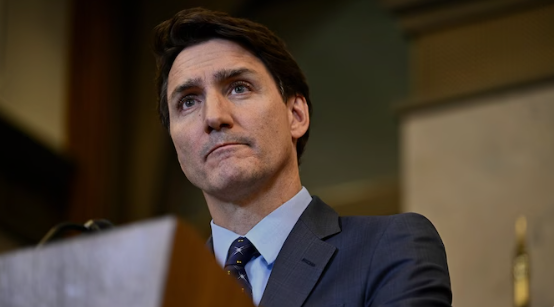On Monday night, the Royal Canadian Mounted Police (RCMP) accused Indian diplomats and consular staff in Canada of engaging in “clandestine” and “criminal” activities, including involvement in homicides. This statement followed the expulsion of senior diplomats from both countries, marking an escalation in the ongoing diplomatic row over the killing of Sikh activist Hardeep Singh Nijjar in British Columbia last year.
RCMP Uncovers Evidence of Criminal Activity
At a press conference, RCMP Commissioner Mike Duheme stated that police investigations have revealed how individuals linked to the Indian government allegedly engaged in acts of extortion, intimidation, and coercion on Canadian soil. According to Duheme, Indian diplomats and consular officials leveraged their official positions to gather intelligence for India, either through direct actions or via proxies. Some of these proxies acted voluntarily, while others may have been coerced. Duheme underscored the “breadth and depth” of criminal activity, which he said poses a significant threat to Canadian public safety.
Prime Minister Trudeau Responds
Canadian Prime Minister Justin Trudeau condemned these alleged actions, stating that Canada would not tolerate any foreign government threatening and killing its citizens. He emphasized that the government has gathered “clear and compelling evidence” that agents acting on behalf of the Indian government are involved in activities that endanger Canadians. These activities include using clandestine tactics, coercing individuals, and engaging in a series of violent acts.
Trudeau’s remarks came as Canadian Foreign Minister Mélanie Joly revealed that the RCMP had identified six individuals as persons of interest in Nijjar’s murder. Canada requested that India waive diplomatic and consular immunity for these officials to facilitate the investigation, but India reportedly refused to cooperate. As a result, Canada served expulsion notices to these individuals. Joly called on the Indian government to support the ongoing investigation, asserting that both countries have a shared interest in uncovering the truth.
Allegations of Transnational Terrorism
The Nijjar killing is not the only case raising concerns about India’s activities abroad. In recent months, activists have claimed that India has orchestrated a campaign of “transnational terrorism,” targeting Sikh activists and other perceived threats to the state across multiple countries. After Nijjar’s assassination, other Sikh activists in the U.S. and U.K. reported receiving warnings of threats to their lives.
These allegations gained traction last November when U.S. agencies claimed they had thwarted an assassination attempt by an Indian official on Gurpatwant Singh Pannun, a prominent Sikh separatist. According to intelligence officials, India has also reportedly carried out assassinations in Pakistan as part of its strategy to eliminate individuals it considers to be threats.
India Denies Allegations, Expels Canadian Diplomats
India’s foreign ministry rejected the accusations, describing them as “ludicrous” and part of a deliberate campaign to smear the Indian government for political purposes. They claimed that Canada has not shared any new evidence linking Indian state actors to Nijjar’s killing since Trudeau’s initial accusations in September 2023. In response to Canada’s actions, India expelled six top Canadian diplomats from New Delhi, further straining the diplomatic relationship.
Canada’s Globe and Mail newspaper and the Associated Press reported that it was Canada that had expelled the Indian diplomats first, citing evidence implicating India’s high commissioner, Sanjay Kumar Verma, in Nijjar’s assassination. Indian officials expressed concerns about their diplomats’ safety in Canada, stating that they had no confidence in Canada’s ability to protect them.
A Growing Geopolitical Rift
The Nijjar case has spurred widespread debate and intensified scrutiny of India’s alleged extraterritorial activities. The White House confirmed last year that the United States takes allegations of India’s involvement in attempted killings on American soil very seriously, indicating that U.S. officials had raised these concerns with the Indian government.
As Canada and India continue to expel each other’s diplomats and make public accusations, the geopolitical rift between the two countries shows no sign of easing. The RCMP has underscored the seriousness of the allegations, describing the situation as a “significant threat” to Canadian society and values. For now, both nations are locked in a tense standoff, with calls for greater accountability and transparency in uncovering the full extent of the alleged activities.



